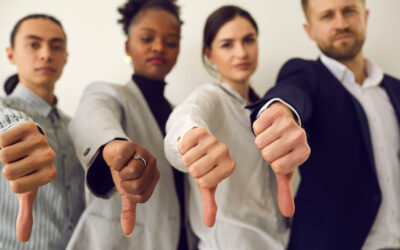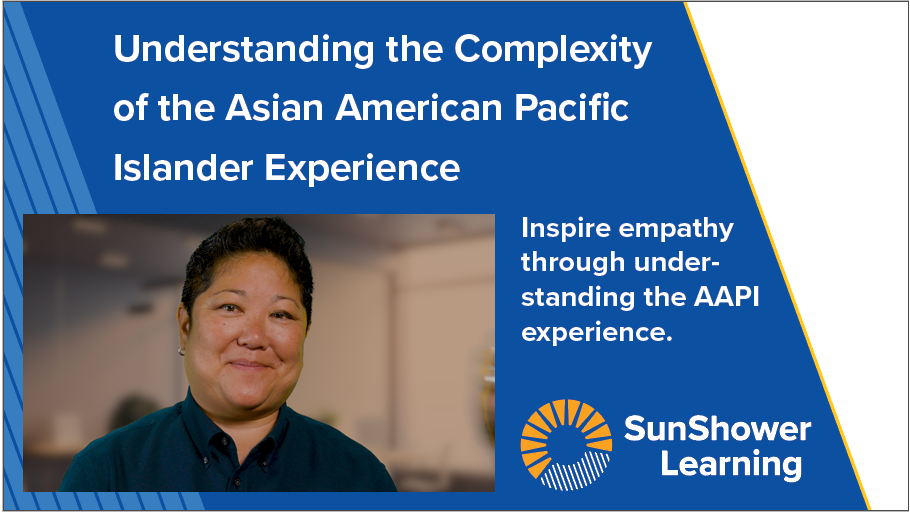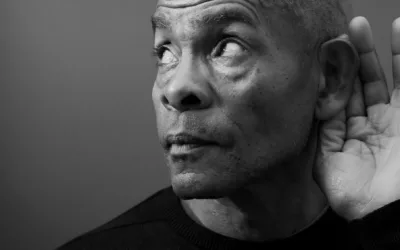
Cristela Alonzo Reminds You That Your Microaggressions Were Never Okay
“I can’t say anything anymore”.
That was the complaint from a participant in an online workshop on microaggressions. We had just watched a montage that weaves together common microaggressions and expressions of confusion and pain among those targeted and bystanders. The timing was mind-boggling.
That’s wasn’t the first time I’ve heard that and I’m sure it won’t be the last. But let’s be as clear as comedian Cristela Alonzo: “The reason why we “can’t say [certain] things anymore” is that such comments were never right in the first place.”
Alonzo has a new comedy special on Netflix, Middle Classy. It’s hilarious and powerful when she talks about dealing with ignorant behavior. She tells the story of an incident at an Olive Garden and an encounter with a woman who had never been around a Latina.
“No one had ever talked to me like that. Like, I didn’t know what to think, I didn’t know how to react. Like, part of me was so mad, I wanted to be like, ‘Hey you racist b—-,’ right?…
“I told my friend that story recently. He’s like, ‘Why are you so mad?’ That happened, like two decades ago.’
“And I was like, ‘Cause I just realized that was f—ed up now.’
“But we didn’t know it was messed up, because back then, it was okay. It was acceptable. But see, that’s the thing. We have to learn that, throughout time, there are certain things you can’t do anymore. It’s not okay.
“Like when people are like, “I can’t say that word anymore?” Guess what? You never should’ve. It’s just that now, we have access to tell you, like, ‘Hey! Don’t.’”
And that access and power to at least say, “Hey! Don’t” is loooong overdue. The story about Cristela Alonzo’s is by Leon Kaye in Triple Pundit He writes, “One reason why the “you’re not allowed to say” trope lingers is that many people had long cluelessly confused silence to their comments with acceptance. Reality check: Such a muted reaction, or total lack thereof, is most likely surprise that anyone would even say such a thing in the first place.
So, here’s a primer: If a response to your observation was silence or an uncomfortable smile, then most likely you dished out a dose of hostility.
Enough of the “funny” comments, because they aren’t. They’re microaggressions — and as they keep piling up, the only outlet that person has is to find a new job — or in your personal life, eventual ghosting. Bottom line: If you’re wondering why that employee has “attitude,” take a step back; most likely they’re tired of the ridiculous comments, and rightfully so.”
Back in the workshop, I didn’t have a story like Alonzo, and I’m certainly not a comedian, so I just asked the person a few questions. How would they to be addressed and can they imagine how it would feel to receive demeaning comments day in and day out. We talked about intent and impact — they may have the best intentions but the message underneath the comments can be harmful.
That’s the thing with microaggressions – intent and impact is critical to understand in order to shift your habits. In the end, it sounded like the person was starting to connect some dots and that’s a step. DEI work is slow and takes time. We all have unconscious biases and have been conditioned over the course of our lives.
And humor can help and that’s why Alonzo’s story is so powerful. Check it out. Next time you hear something, say Ouch! and share the link to her Netflix show.
More From Our Blog…
Understanding Employee Responses to DEI Initiatives: Insights and Strategies
A recent study sheds light on a previously underexplored aspect of DEI training. While much focus has been placed on the facilitators, trainers and the content of DEI programs, this study examines how employees actually respond to the training. Published in Harvard...
SHRM’s Removal of “Equity” From DEI Framework: A Step Backwards Amid Growing Backlash
In a stunning step in the wrong direction, the Society for Human Resources Management (SHRM), the world’s largest HR association, has removed “Equity” from its “IE&D” framework. What message does this send, especially amid strong pushback against Diversity, Equity...
Navigating the Shifting Landscape of Diversity, Equity and Inclusion Programs
In the midst of the evolving landscape of corporate diversity initiatives, there's a seismic shift underway. The once-prominent acronym "DEI" - representing diversity, equity and inclusion - is notably absent from many company discussions. As explained in the article...
A Groundbreaking New Course: Understanding the Complexity of the Asian American Pacific Islander Experience
With over two decades of experience in the educational sector, Hideko Akashi, founder and lead consultant at Liberation Consulting, has been a steadfast advocate for diversity, privilege, social justice, inclusion and equity. Now, she's opening a new chapter with the...
The Deafening Silence of DEI Allies: A Call to Action in Troubled Times
As we commemorate the legacy of Rev. Dr. Martin Luther King Jr., his poignant words echo through the corridors of history, reminding us of the profound impact of silence in the face of injustice.” In the end, we will remember not the words of our enemies, but the...
DEI LEAP: Empowering Leaders Through Turbulent Times
DEI LEAP: Empowering Leaders Through Turbulent Times As we all know, 2024 has brought a wave of attacks against DEI. A handful of outspoken critics, such as Elon Musk, are misrepresenting DEI and attacking the strategies and practices that are creating more equitable...






